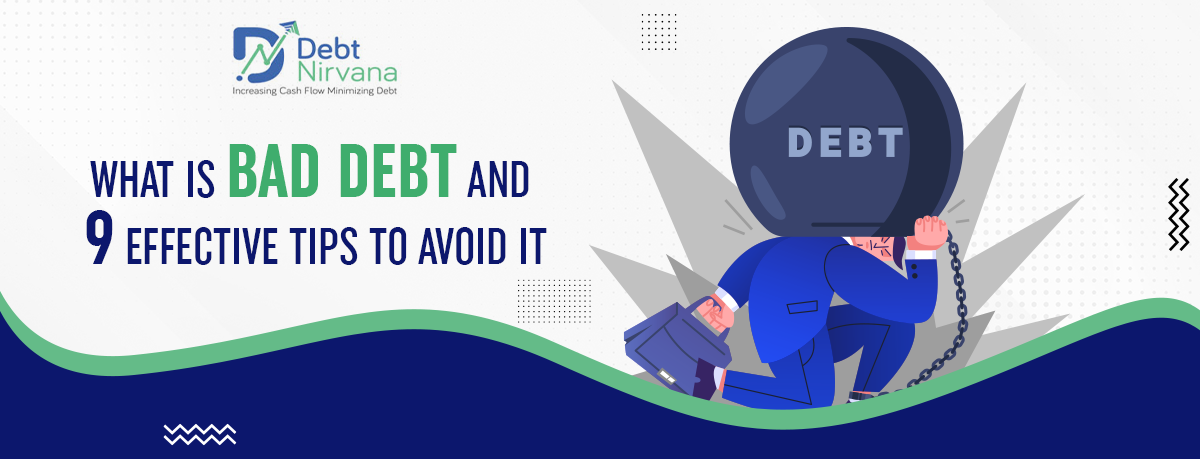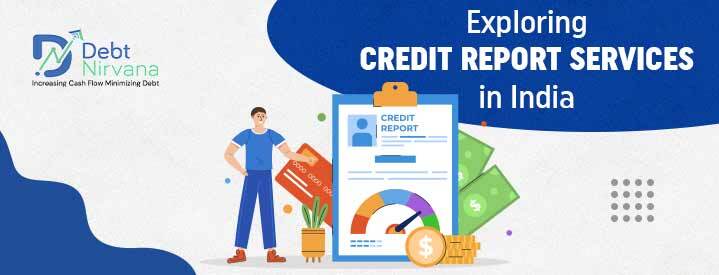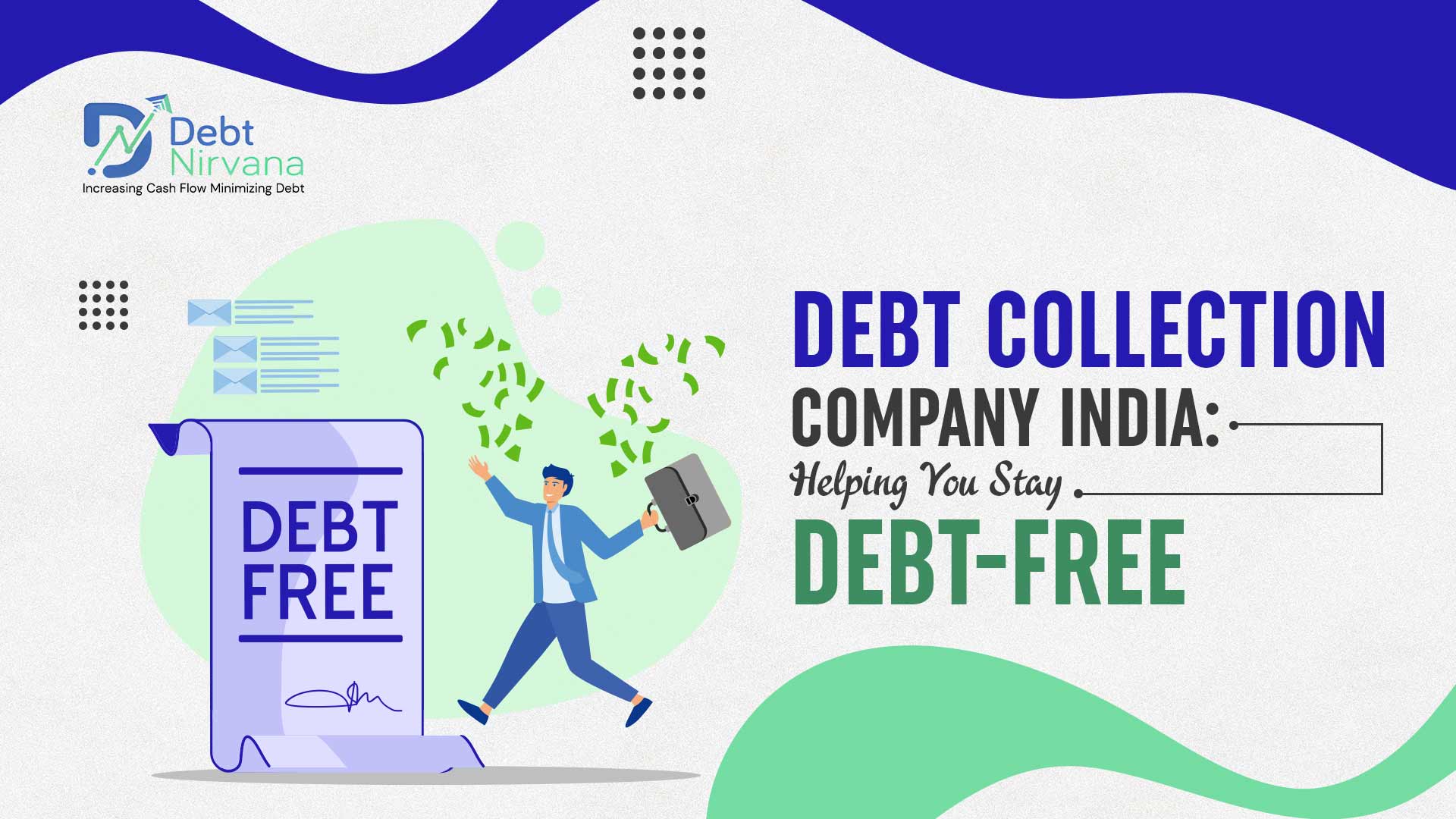
What is Bad Debt and 9 Effective Tips to Avoid it
Navigating the treacherous waters of business finance can be daunting, especially when it comes to managing and avoiding bad debts. Here are 9 Proven Tips to Avoid Bad Business Debts & more.
When you start a business, you will get to experience both its positive and negative aspects. And bad debt is one of such inevitable negative aspects. As its name suggests, bad debt is quite bad for businesses. Its occurrence signifies that one of your customers did not pay for the product/service provided and you’re unable to recover the amount. It is then registered as an unrecoverable expense that can stifle growth, disrupt cash flow, and create stress.
However, knowing what is bad debt and implementing strategies to avoid it can shield you from its adverse effects. From practical steps to the expert intervention of a Bad Debt Collection Agency in India, this blog will guide you through the maze of bad debt, illuminating paths to safeguard your earnings. By the end, you’ll not only be more knowledgeable but also better equipped to safeguard your finances against the pitfalls of bad debt.
What Is a Bad Debt in a Business?
Bad debt occurs when receivables payments become uncollectible. This turns the potential income into a financial loss for the business. It often results from extending credit to customers who fail to pay back. However, recognizing the signs early can prevent losses and maintain healthy cash flow.
Tips to Avoid Bad Debt in Business
Preventing bad debts is crucial for maintaining the financial health of your business. Here are nine effective tips to help you steer clear of the pitfalls associated with unpaid dues, ensuring your cash flow remains robust and your financial future bright.
1. Credit Check New Customers
Before you leap into a new business relationship, take a moment to look before you land. Conducting a credit check on new customers is like peeking into their financial past. It gives you a glimpse of their reliability, helping you make informed decisions about extending credit. Think of it as due diligence that safeguards your interests.
2. Have Clear Credit Terms
Clarity is key in any relationship, including those with your customers. Establish clear credit terms from the get-go. This means being upfront about payment deadlines, late fees, and interest charges. It sets the stage for transparent dealings, reducing misunderstandings and setting expectations right.
3. Regular Monitoring
Keep a close eye on your accounts receivable. Regular monitoring acts as your financial radar, alerting you to potential storms on the horizon. It enables you to spot late payments early, allowing for timely interventions. Think of it as keeping your finger on the pulse of your business’s financial health.
4. Send Invoices and Statements Promptly
Promptness pays, quite literally, when it comes to invoices and statements. Sending these documents as soon as services are rendered or products are delivered minimizes the gap between transaction and payment. It’s a simple yet effective way to encourage timely payments.
5. Don’t Delay Putting Delinquent Accounts on Hold
If a customer consistently pays late, don’t hesitate to put their account on hold. As your hesitation can lead to accumulation. Besides, when you put such accounts on hold it signals your seriousness about credit terms and protects your business from further exposure to bad debt. Additionally, This firm stance can motivate your customers to settle their dues if they value your products or services.
6. Resolve Disputed Invoices Quickly
Disputes can tie up your funds and derail your debt collection efforts. Addressing and resolving disputed invoices quickly can clear the path for payment. It demonstrates your commitment to debt recovery and keeps the payment process moving. This significantly reduces the chance of the account turning into bad debt.
7. Use of Escrow Services
For larger transactions, consider the shield of escrow services. These services act as a neutral third party, holding funds until both sides meet their obligations. It’s an added layer of security that ensures transactions are completed to everyone’s satisfaction, reducing the risk of non-payment.
8. Modify Terms for Late Paying Customers
Flexibility can be a virtue when dealing with late-paying customers. Modifying payment terms—for instance, setting up installment plans—can provide a way out for customers facing temporary difficulties. It’s about finding a middle ground that ensures you get paid while maintaining customer relationships.
9. Engage Professional Help
Sometimes, despite your best efforts, debts turn bad. This is when engaging professional help can make a difference. A Bad debt collection agency in India specializes in recovering unpaid dues while you focus on running your business. They bring expertise and persistence to the table, turning the tide in your favor.
Preventing bad debts is about being proactive, vigilant, and, when necessary, flexible. By implementing these tips, you can protect your business from the financial strain of unpaid dues, ensuring a smoother, more secure path to success. Remember, in the world of business, foresight, and action are your best allies.
Conclusion
Bad debt can be a daunting challenge, particularly in a vibrant economic landscape like Ahmedabad’s. However, with informed strategies and proactive measures, it’s a challenge that can be managed and minimized. By conducting due diligence, maintaining clear communication, and seeking professional assistance when needed, you can protect your financial well-being.
If you’re seeking bad debt recovery services India, look no further than Debt Nirvana. We’re well-known in India for providing effective debt recovery services that yield results. Our knowledgeable debt recovery specialists treat debtors with courtesy and diligence.
To learn more about us, visit our website or send us an email at rvm@debtnirvana.com.




